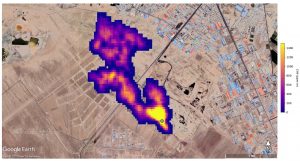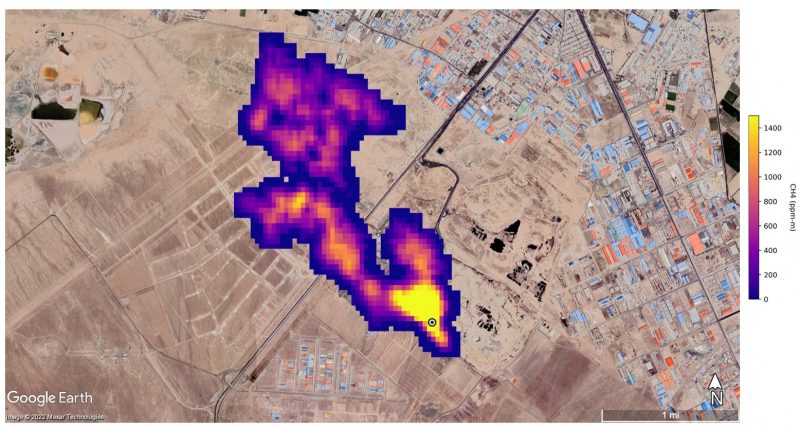The abduction of a little-known Chinese actor from Thailand, to a scam centre across its northwestern border in Myanmar, has hurt the Thai tourism industry.
News about the drama involving Wang Xing, who was rescued last week – unlike thousands of other foreigners stuck in notorious compounds in a lawless zone near the town of Myawaddy – received considerable publicity in both Thailand and China.
Wang Xing, 31, was lured to Thailand by a Chinese compatriot to audition for a film shoot, then driven 500km north and taken on a boat across the Moei River, avoiding immigration checkpoints while crossing the border near the town of Mae Sot.
ALSO SEE: New US Sanctions ‘Will Cut Russian Oil Shipped to China, India’
Wang’s girlfriend Jia Jia lost contact with him after two days, which led to her contacting police in Shanghai then Chinese consular offices in Thailand. She then flew to Thailand and her social media posts were shared by Chinese celebrities, according to a report by The Guardian, which said “a related hashtag saw more than half a billion engagements on Weibo.”
Early last week Wang was located in Myanmar, probably by a Chinese police unit in the Thai town which monitors the criminal activity by Chinese gangs in the scam centres around Myawaddy, just over the river – areas which are controlled by a Burmese Karen militia aligned with the Myanmar military regime.
This area has become one of Asia’s most notorious criminal hubs because of the abundance of scam centres run by Chinese triads, which have thrived in Myanmar since widespread conflict erupted after the military staged a coup to oust the Suu Kyi government nearly four years ago.
‘Incident dampens visitor enthusiasm’
Thai police said Wang was a victim of human trafficking, and that by the time he was put on the boat to cross the narrow Moei River he realized he had been deceived, but did not dare resist.
Unlike at least two other Chinese who are still missing and believed held across the border, Wang was able to return to Thailand. The exact circumstances of his release are unclear, but the payment of ransoms for people held in these centres is not unusual.
The problem for Thailand was the case of Mr Wang, who appeared disoriented and had been shaved bald while he was detained in the scam hub, was widely publicized on social media in China.
Wang had reportedly received two days of training in telecommunication scams targeting other Chinese victims prior to his release, according to the South China Morning Post, which said “the incident soon dampened Chinese tourists’ enthusiasm for travelling to the Southeast Asian destination as the annual Lunar New Year travel rush approaches.”
The Chinese lifestyle platform Xiaohongshu – “Little Red Book”, searching “How do I cancel my Thailand trip?” had more than 380,000 posts last Thursday.
And thanks to popular local movies such as ‘No More Bets’, Chinese citizens are very aware of the dangers of Southeast Asia’s scam compounds, which are active also in Special Economic Zones in northern Laos and parts of Cambodia.
Needless to say, this case immediately rang alarm bells in the Thai government. That’s because China is their biggest source of foreign tourists.
Some 6.73 million Chinese visited the ‘Land of Smiles’ last year, out of 35.3 million total visitors. International visitors were said to have generated 1.67 trillion baht ($48 billion) in revenue in 2024.
Chinese cancelling tours
So, it was no surprise to see Prime Minister Paetongtarn Shinawatra, daughter of former premier Thaksin, ordering officials to crack down on crimes linked to the scam centres, to try to limit damage to Thailand’s reputation as a safe tourist destination.
Government spokesman Jirayu Huangsub said today Paetongtarn had told the Ministry of Tourism and Sports to launch campaigns to boost tourist confidence and ordered police to closely monitor the operations of influential gangs.
Tourism bodies initially expected visitor numbers from China to drop by 20-30%, but the Bangkok Post reported on Tuesday that hotels and airlines have started to see mass cancellations during the upcoming Chinese New Year break.
The situation is tricky for the government, because the criminal gangs operating in Myanmar are said to have raised billions from victims all around the world, and have allegedly expanded their murky roots on both sides of the border, including into Mae Sot town and Tak province.
On a visit to the town last September I was told it was not unusual to see local officials driving around in Lexus and other nice cars. And the scam centres have long been able to get power and internet access via Thailand, which suggests Thai efforts to counter the scam centres has been often half-hearted.
Push for legal casinos
Meanwhile, the other big news in Bangkok this week is that the Thai Cabinet has approved a draft law that would legalise gambling and casinos.
The law, which has yet to go to parliament, would see gambling take place in large-scale entertainment complexes.
The move is no surprise, given many of Thailand’s neighbours have large casino resorts and Shinawatra governments have argued for years that banning casinos is like turning your back on revenue.
However, officials for the UN Office for Drugs and Crime said last year they had warned the Thai government that legalizing casinos would just open the door to even greater criminal involvement. And that gangs running scam centres in the region will just have more places to launder the money they plunder from people around the world.
- Jim Pollard
NOTE: Changes were made to the text of this report on January 15, 2025 because of a discrepancy over how long Wang was held in the scam centre in Myanmar.
ALSO SEE:
SE Asia Crime Networks Rely on Telegram, Crypto, UN Says
Weak ASEAN Nations ‘at Risk of Evolving Into Scamming States’
‘US to Sanction Prominent Cambodians Tied to Scam Centres’
N Korean Hackers Used Cambodian Firm to Launder Stolen Crypto
Scamming Compounds in SE Asia Stole $64 Billion in 2023: Report
High-Tech Asian Crime Wave: Cyber Scams, Casinos Loot Billions
Big Tech ‘Doing Little’ to Counter Rampant Scams on Social Media
Macau Junket King Alvin Chau Gets 18 Years For Casino Crimes
Crime Gangs Control Some Myanmar, Laos Economic Zones: UN
























